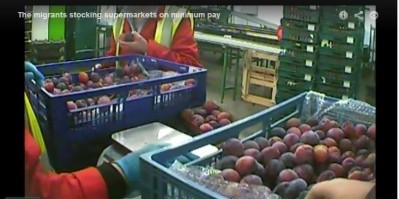Retailers call for collective action to stamp out migrant worker exploitation

The incidents of alleged abuse identified in the Channel 4 report followed an investigation by its journalists into the alleged mistreatment of migrant workers in Spain, which supplied the multiple supermarket chains in the UK with fresh produce such as salad.
Some of the migrant workers interviewed in the report claimed they had worked for days on end while only being paid for a fraction of the work they had done by the employment agencies hiring them. The report also pointed to unacceptable housing and working conditions, including examples of people working in fields while crops were being sprayed with chemicals that posed a hazard to human health.
‘Supermarkets will examine allegations’
Andrew Opie, the BRC’s director for food and sustainability, said: “Ensuring workers are treated fairly in our supply chains is a key concern for retailers and we know all supermarkets will examine these allegations closely to take both immediate action where appropriate and refine their auditing procedures.”
Opie remarked that investment in ethical auditing had been a priority for UK supermarkets and “they will continue to improve and adapt them to meet future challenges; something we made clear in our clear support for the Modern Slavery Act”.
But Opie noted that this was only part of the solution to abuse of migrant workers and more concerted action by suppliers in conjunction with the authorities was required to stamp out such practises.
“Ethical auditing is only one part of the solution to this which also requires effective day-to-day management of labour issues by suppliers and clear support from governments, both here and abroad, to enforce basic labour legislation,” he said.
While the major multiples have been behind the establishment of the Ethical Trading Initiative (ETI), which aims to prevent the exploitation of workers around the world by companies that supply them, its success is largely dependent on the auditing of these suppliers, either directly or by third parties.
Audits alone not enough
The BRC points out that while this goes some way to preventing exploitation, it alone will not be enough to stamp out exploitative practises.
In the UK, the Gangmasters Licensing Authority (GLA) regulates the operation of companies and individuals that provide temporary workers to farms and food processing operations to ensure they operate within the law and do not exploit their workers. It is believed that no similar body to the GLA exists in Spain.
The GLA set up in April 2005 in the wake of the Morecambe Bay cockle picking tragedy on the evening of February 5 2004, when at least 21 Chinese cockle pickers were drowned by an incoming tide.



















